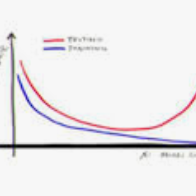We introduce the use of generative adversarial learning to compute equilibria in general game-theoretic settings, specifically the generalized Nash equilibrium (GNE) in pseudo-games, and its specific instantiation as the competitive equilibrium (CE) in Arrow-Debreu competitive economies. Pseudo-games are a generalization of games in which players' actions affect not only the payoffs of other players but also their feasible action spaces. Although the computation of GNE and CE is intractable in the worst-case, i.e., PPAD-hard, in practice, many applications only require solutions with high accuracy in expectation over a distribution of problem instances. We introduce Generative Adversarial Equilibrium Solvers (GAES): a family of generative adversarial neural networks that can learn GNE and CE from only a sample of problem instances. We provide computational and sample complexity bounds, and apply the framework to finding Nash equilibria in normal-form games, CE in Arrow-Debreu competitive economies, and GNE in an environmental economic model of the Kyoto mechanism.
翻译:我们引入了基因对抗性学习,以计算一般游戏理论环境中的平衡,特别是假游戏中的普遍纳什平衡(GNE),以及它作为箭头-Debreu竞争经济体中的竞争平衡(CE)的特殊即时反应。优度游戏是对游戏的概括化,在游戏中,玩家的行为不仅影响其他玩家的报酬,而且影响他们可行的行动空间。虽然GNE和CE的计算在最坏的游戏(即PPAD-硬游戏)中难以做到,但许多应用实际上只需要对问题案例的分布有高度准确的预期的解决办法。我们引入了“General adversarial equiquiquiblium Solverers(GAES) ” (GAES) :一个只从问题实例样本中学习GNE和CE的基因对抗神经网络组合。我们提供了计算和样本的复杂性界限,并运用框架在正常的游戏中找到Nash equilicririri、Arrow-Debre有竞争力的经济体的CE,以及京都机制的环境经济模型中找到GNE。


